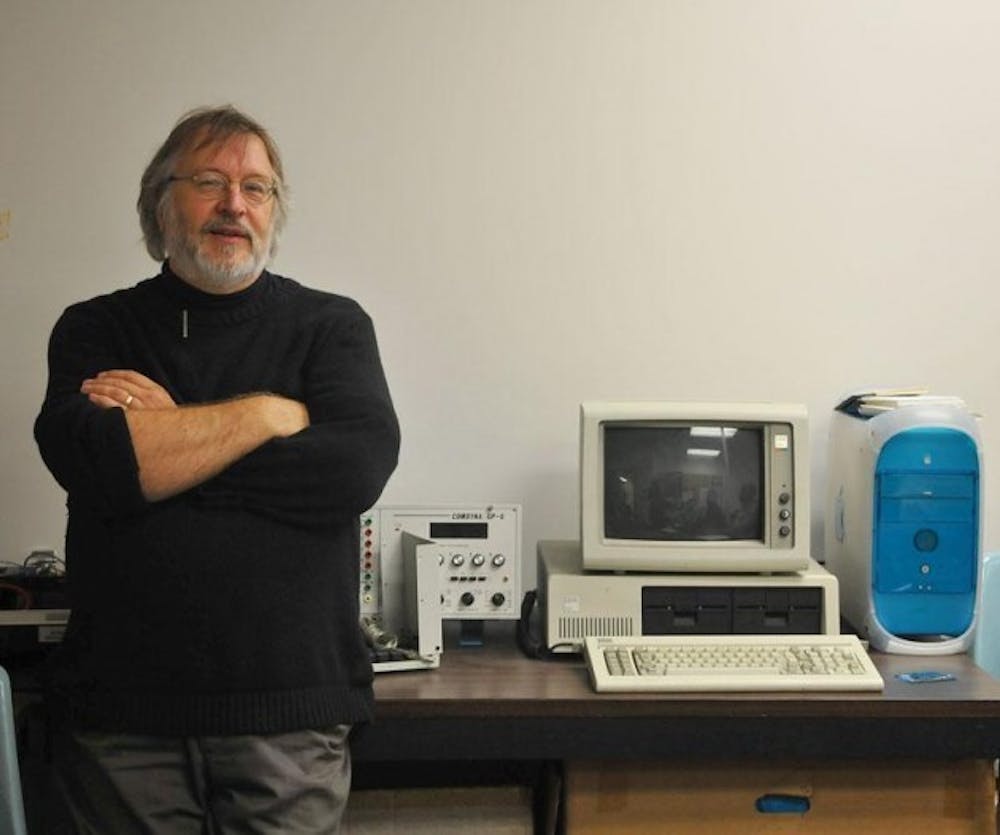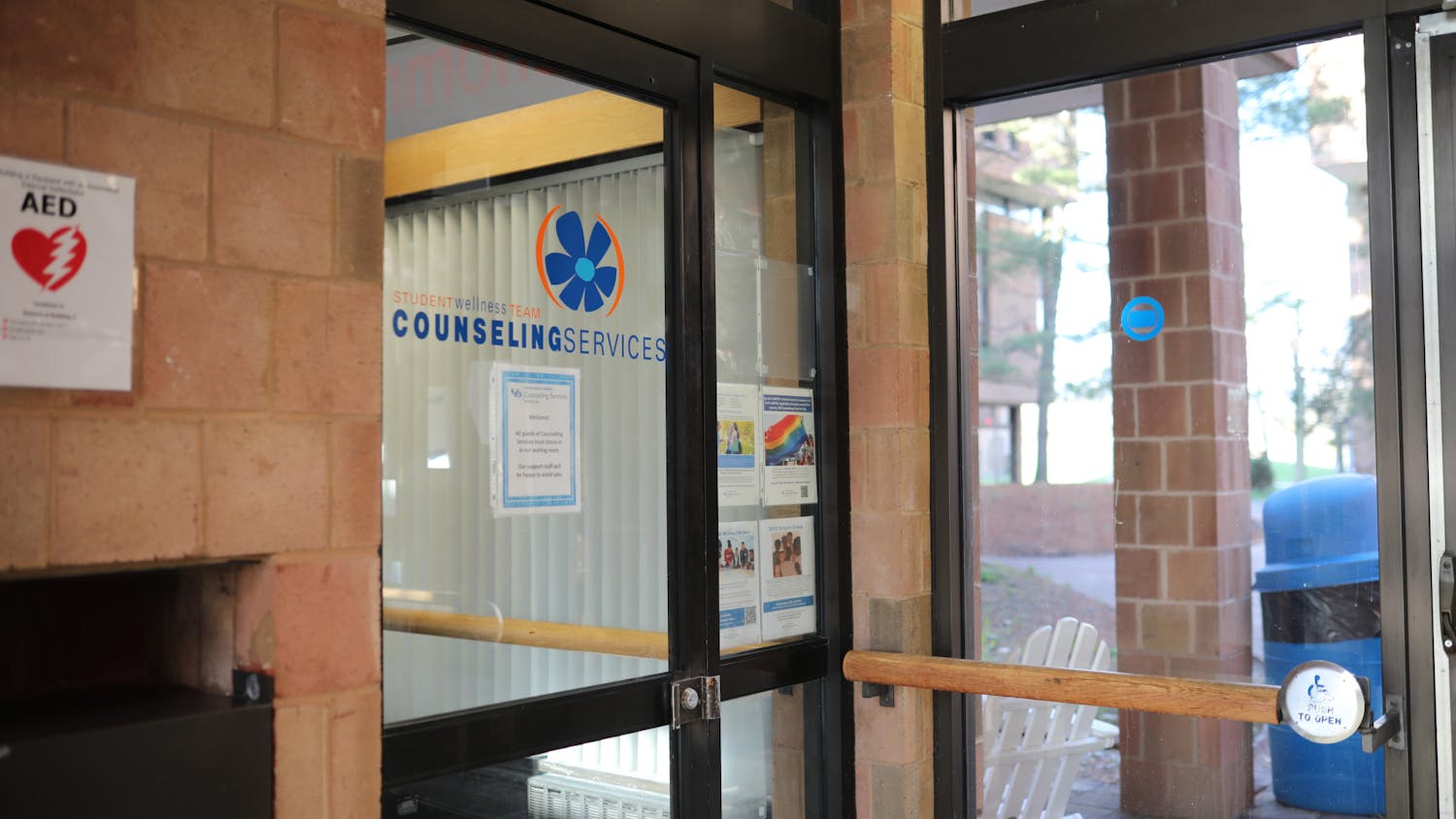It's one thing to invent the next version of Guitar Hero, or be able to make a million dollars from Angry Birds. It's quite another to develop software based solutions that improve the quality of life for others.
Michael Buckley, an assistant professor in the computer science and engineering department (CSE) at UB, has taught for over 20 years, making great strides in the computer science field, as both a teacher and an engineer. But he doesn't let his success affect him. Working in his lab, Buckley offers advice and assistance to the TAs and students that surrounded him with an amiable charm.
When he started out in computing, Buckley was thrown into a newly established software position with little experience in the software field. Buckley wasn't always a computer engineer. In fact, if not for chance, he may have never had the opportunity.
When Buckley was 32 years old, he applied to a company's position opening as an electrical engineer; he had only six years of experience designing integrated circuits. When his interviewer asked him what kind of engineering he did, Buckley replied, "What kind do you need?"
The company needed a software engineer, and suddenly that's what Buckley became. After working as a software engineer for private industry companies, the government, and being co-owner of his company, he decided to trade in his business suits for textbooks. "I love teaching; I absolutely love it," Buckley said. "I find it so much more rewarding [than working in industry]."
Some professors go straight from getting their doctorate degree to teaching without exploring other job opportunities within their field. Buckley is unique in that his experiences outside of the classroom allow him to give students a real life perspective.
"[Buckley teaches by] marrying academic with the real world application of the trade and skills they're learning," said Kim Grant, the business development manager of Applied Sciences Group, Inc. (ASG).
Grant and ASG recently worked with Buckley and his lab. Together, they created and deployed a wireless communication network for a spinal cord injury center at the James A. Haley Veteran's Administrations hospital in Tampa, Fla.
Helene Kershner, a recently retired assistant chair for CSE, played a large role in promoting Buckley from a part-time to full-time professor.
"He's a natural teacher. He knows how to work a class," Kershner said. "Mike brings a level of industrial experience and practical knowledge that is invaluable."
Whether it's just a general education class or one of his senior software classes, Buckley teaches for the student's comprehension, not just their grades. That's one of his favorite parts of teaching.
Helping students understand the material, watching their eyes bulge, and seeing eyebrows go up, is both challenging and exciting, according to Buckley. He loves to see "the light bulbs go off" as he teaches.
Buckley laughed as he considered whether there was a secret to his success.
"I never leave a student behind," Buckley said. "If a student is trying and not getting it, then I feel I'm not teaching it correctly. So I change the way I present the material, or find more relevant examples."
To Buckley, being able to relate a topic to something current is very important. What he focuses on is teaching material students can apply to their experiences, something they can't find in textbooks.
Grant believes there is another reason for his success.
"I really think that he's providing his students with a real competitive advantage." Grant said. "He's teaching them not just what they need to know but why they need to know it."
It's not just teaching Buckley loves; he's also passionate about making a difference in the community. Buckley founded the Center for Socially Relevant Computing (SRC) in 2009 with Kris Schindler, another CSE faculty member. Ever since, the lab has been inventing programs with the aim of helping individuals in need from firefighters to disabled veterans.
"Kris was very instrumental in pushing me to build something. So was my wife, who knew from raising a disabled daughter that there was great need out there." Buckley said.
The UB Talker was another one of the SRC developments of Buckley and Kershner. The UB Talker is a laptop with touch-screen interface that helps its users communicate.
A 40-year-old nursing home resident who suffered a stroke at age 20 could barely move and was unable to speak. With the use of the software developed by Buckley and Kershner's students, this man was able to speak on the phone for the first time in 20 years. The night the UB Talker was delivered, Buckley was one of the first people called. After thanking Buckley and the SRC lab, the man was thankful he could finally order a pizza.
In his lab now, students from his senior engineering class are working on a device that could give movement simulation for people using wheelchairs, according to Buckley.
Greg Houston, a senior computer science major working on this project, sums up working under Buckley with one word: fun. Many others praise him for teaching them concepts that can be applied to real life situations.
Michael Buckley inspires others with his enthusiasm, his innovation, and his compassion. His personal passion for making a difference and the joy he gets from it gives students the desire to do the same.
Email: features@ubspectrum.com





